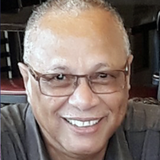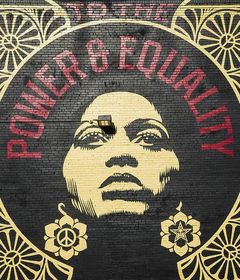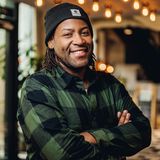This event is a continuation of our past collaboration with NiNsee, where we spoke to members of the ABCSSS-community about ‘Commemoration perspectives from the Caribbean Islands’. This time we are offering members of the community an opportunity to continue the conversation on the colonial effects and practices currently at play on the islands. The goal of this meeting is to inspire a feeling of solidarity between community members and to find their views of what reparation would look like.
We will also be reflecting on the reaction to, or apology for, the Dutch colonial past which will take place on december 19th.








Aubrich Bakhuis defended his PhD-thesis with the title ‘Autonomy, Supervision and Intervention within the Kingdom of the Netherlands’ in 2020 at the Erasmus School of Law. Born and raised in The Netherlands, with Curacao and Aruban parents, he considers himself a ‘Kingdom child’. He practiced law at a Dutch Caribbean law firm based in Curacao for five years. Currently based in the Netherlands, he is a fellow at the Themis Institute for Governance & Leadership and guest lecturer at the University of Curacao.
Ruben Severina is Board member of the NINsee, chairman of the supervisory board of the foundation Stichting Overlegorgaan Caribbean Dutch (OCAN), at the time coordinator of Tula Commemoration in the 1980s on Curaçao, and secretary of the Inter-Island Consultation on the Effect of Slavery.
Alexine Gabriela (she/her & they/them), also known as Alex, is a queer Afro-Caribbean femme, community organizer and junior researcher based in Amsterdam. She is particularly interested in decolonial, Caribbean and feminist perspectives of Black life. She is co-founder of the Caribbean collective 6 ISLANDS zine and grassroots archivist at The Black Archives in Amsterdam which is an archive that focusses on Black history in the Dutch context.
Paul David Romo is a financial assistant & consultant at Stichting WeConnect. Entrepreneurial innovator of Youth Enterprise Platform (YEP), which is a program & platform for teaching entrepreneurship in a collaborative business manner.
Lysanne Charles is a PhD researcher with the “Island(er)s at the Helm” Programme studying Governance, Policy Development and Community Engagement around Climate Challenges on the islands of St. Maarten, Saba and St. Eustatius. She is based at the University of St. Martin, while engaging with her studies at the University of Amsterdam. Born and raised on Saba, educated on St. Maarten and Curacao, and with deep connections to St. Eustatius, Bonaire and Aruba, she considers herself a daughter of the islands. Lysanne is also an artist and activist and focuses on amplifying the causes of marginalized groups including LGBTQIA+, Women, Migrants and Youth.
Juneal Holder is a wordsmith and sociologist with a specialization in social inequalities. Juneal’s main intentions are to help, educate and inspire people with both his academic knowledge and spiritual wisdom. He hones into his spiritual gifts as an empath to capture vibrations and uses his analytical mind to address social phenomena as well. He transmutes his observations, analyses, and energy he senses into poetry, blogs, and critical pieces. Juneal publishes his works on his blog JunealHolder.blog

Short introduction to the evening done by Kjelld Masoud. He will be working under the assumption that the participants of this evening have some familiarity with the topic and problems, so it will not be an in-depth overview.
Activist James Finies and PhD. Lysenne Charles will share their experiences with and perspectives on colonialism on the islands, Bonaire and Sint Maarten respectively.
Chance for the audience to ask questions, specifically for the zoom speakers
Here, our speakers Aubrich, Paul, Alexine, Laurindo and Ruben will each lead a workshop/town hall session about the effects of colonialism and ideas for reparations in the domains Politics, Economy, The Self, Culture and Education respectively.
Juneal will perform a prepared piece of spoken word.
Here, we plenary present the results of each circle and give space for inter-circle conversation.
Juneal performs a ‘spontaneously created’ spoken word piece summarizing our evening





